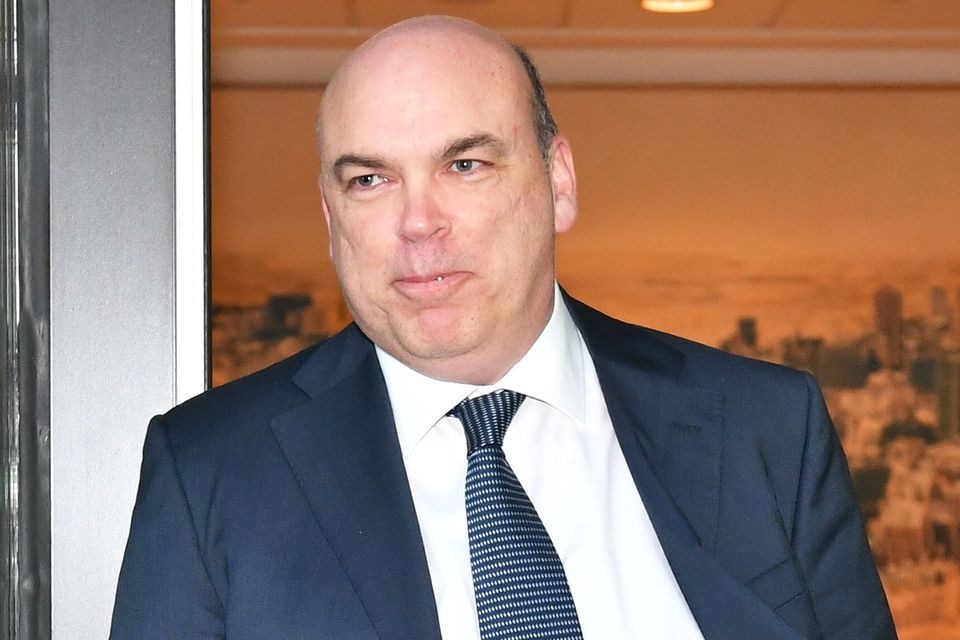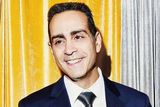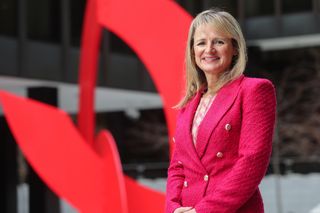Once the star of Europe’s tech scene, Mike Lynch faces his biggest battle in the US
Court is told tech entrepreneur spun a ‘fabulous tale’ to lure HP into $11bn deal for Autonomy
Former Autonomy boss Mike Lynch. Photo: PA
At 58, tech entrepreneur Mike Lynch might have been expecting to enjoy a lengthy retirement, tending a herd of prize sheep from his English stately home and clocking up corporate and public sector board appointments.
Instead he’s in a San Francisco court, facing criminal charges and a potential prison sentence.
The court will ultimately decide whether Lynch and other named Autonomy bosses pulled a massive fraud when they sold their software business to Hewlett Packard for $11bn in 2011 – or if the losses that stemmed from that deal were simply a case of a merger gone wrong.
The stakes are massive for Lynch, the Essex-raised son of a Cork-born fireman father and Tipperary teacher mother, who like hundreds of thousands of kids of his generation grew up in England but spent summer holidays “at home” – in Lynch’s case in Carrick-on-Suir.
He was once seen as Europe’s Bill Gates. His early life and career were marked by huge success. Scholarships carried him to the pinnacle of academic achievement and he earned a PhD from Cambridge University.
He parlayed that, plus an early switch into software, into business success, starting a series of businesses that culminated with Autonomy.
Founded in 1996, the company developed software that could rapidly sift large volumes of data, pre-empting the direction of the digital revolution.
It made him fabulously rich by his early 40s, and he personally netted around $800m from the Autonomy sale to Hewlett Packard, on top of the millions he had earned in pay and previous share sales.
Before the Autonomy blow out, Lynch was in demand, having been appointed to the board of the BBC and advising then UK prime minister David Cameron on the potential and dangers of AI as early as 2011.
Lynch personally netted around $800m from the Autonomy sale to HP
That trajectory has been pushed dramatically off course since the Autonomy deal went sour, post sale, when Hewlett Packard, later HP, very publicly wrote down nearly $9bn from the value of the business.
Recriminations followed swiftly – and instead of enjoying an early retirement and the plaudits of his peers – or indeed moving on with a major new venture – Lynch has spent much of the last decade defending his role, including contesting civil cases.
Now Lynch and Stephen Chamberlain, Autonomy’s former vice president of finance, are both defending themselves against 16 felony counts of fraud and conspiracy in a trial that is expected to run until late May or June and include testimony from more than 40 witnesses.
If convicted by a jury, Lynch and Chamberlain could each face a sentence of more than 20 years in federal prison.
Autonomy’s former chief financial officer, Sushovan Hussain, was sentenced to five years in prison in the US in 2019 after being convicted on 16 criminal counts of fraud and conspiracy.
As well as Lynch’s role, the case is likely to shine a light on former HP chief executive Meg Whitman, who took over the US tech firm just as the Autonomy deal was closing and on whose shoulders it fell to integrate the two firms.
Whitman had risen to fame in the business world at tech start-up eBay and had been hired, in part, to bring a new economy drive to HP after dipping her toe into politics with a failed run for California governor.
However the bounce HP shareholders were hoping from by hiring Whitman and buying Autonomy never came off. Under Whitman, HP laid off thousands of workers and split itself into two entities in 2015.
Lynch paints himself as a scapegoat for a bumbling management team
On her watch HP uncovered what it said was evidence Autonomy had inflated its value before the takeover, prompting her to write off much of the acquisition price.
She stepped down as CEO of the spun-off company, Hewlett Packard Enterprises in 2018.
In the meantime the US criminal trial was delayed to allow for a civil case in London being brought against Lynch and Sushovan Hussain.
In 2022, the London judge found mostly for HP but indicated the damages would be less than £3.9bn the company was seeking. The amount is still subject to litigation.
In the London civil trial, Lynch maintained his innocence and painted himself as a scapegoat for a bumbling management team and casting Whitman as being “out of her depth”.
That narrative is likely to be revisited in the US case.
Lynch was extradited to the US in May 2023 and has been living under court-mandated restrictions in San Francisco on a $100m bail bond while awaiting trial. That case kicked off on Monday and looks set to be long and testy.
(Additional reporting by AP)
Join the Irish Independent WhatsApp channel
Stay up to date with all the latest news














